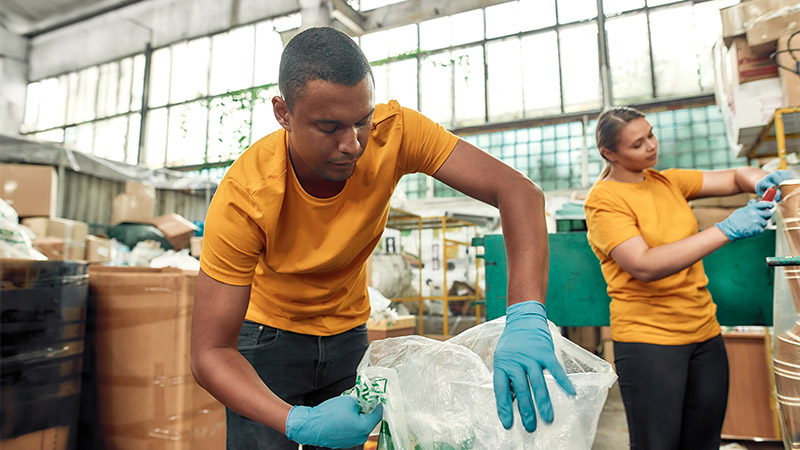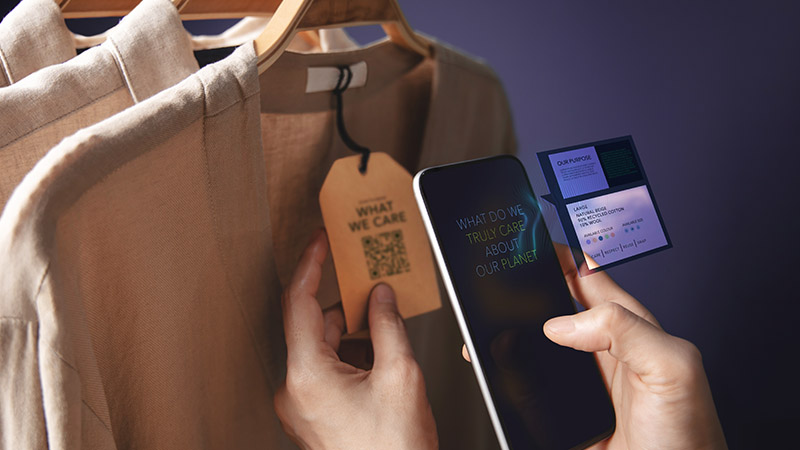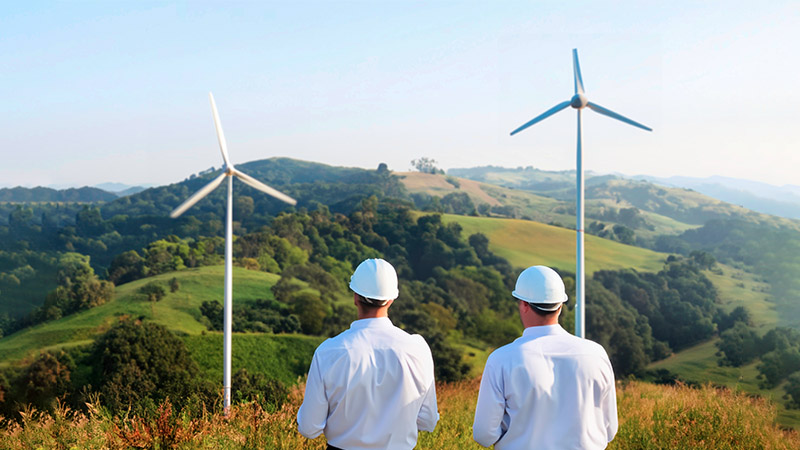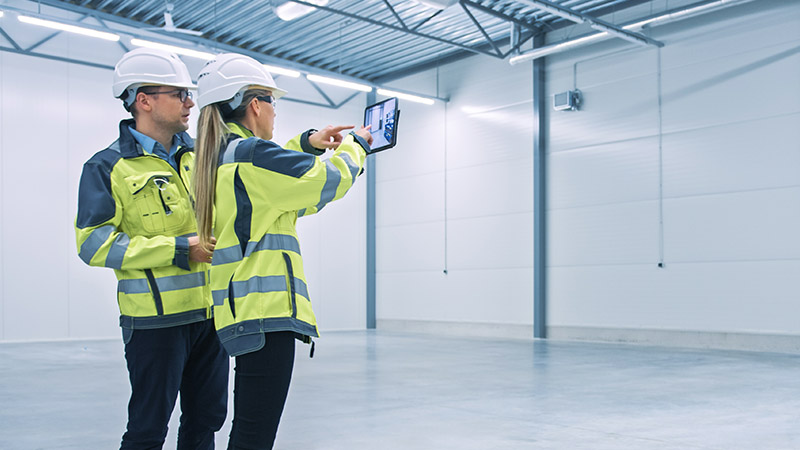Sustainability trends in logistics for 2024

What is sustainability in logistics? And why does it matter to your business? Read on as we explore how your business can make sustainable changes in 2024 that will save it money, improve its efficiencies, and enhance its reputation.
What is sustainability in logistics?
Firstly, let’s quickly remind ourselves of what logistics is. It covers all the processes a business has in place to get their goods from the point of origin to the customer – including procurement, inventory management, distribution, warehousing, transportation, packaging and risk management.
Sustainability in logistics refers to actionable steps a business can take to reduce the environmental impact of these processes. Examples include carbon offsetting, optimizing transport routes (to reduce emissions), and switching to electric vehicles.
 Sustainability in logistics and supply chain management
Sustainability in logistics and supply chain management
Within the wider supply chain, logistics is the part your business has the most direct control over. Research1 has shown a positive correlation between a company’s GCSM practices (Greenhouse Emissions, Recycling, Waste, and Renewable Energy) and its profitability, making it a key area you should invest resources in.
The importance of sustainability in logistics
The European Environment Agency predicts that logistics will account for up to 40% of global carbon dioxide emissions by 2050 unless effective measures are taken2.
Beyond playing its part in changing this gloomy forecast, there are many reasons your business should be considering how green its logistics practices are:
 Your customers are paying attention
Your customers are paying attention
A survey by McKinsey3 found that 66% of respondents say that they consider sustainability when they make a purchase, aligning themselves with brands that are compatible with their values and priorities.
Yet, they’re also wary of “greenwashing”; in fact, a separate study found that 88% of Gen Z don’t believe businesses’ environmental, social and governance (ESG) claims4. So, building an authentic sustainability strategy is key to enhancing your brand image and gaining a competitive advantage.
You can improve efficiencies – and save money along the way
A sustainability strategy will help your business embrace a culture of innovation and agility. You’ll review your current logistics operations, enabling you to spot inefficiencies and make changes that are not just better for the environment, but will save your business money. For example, implementing route planning software across your transportation fleet will reduce your emissions and your fuel costs. It’s a win-win!
 Sustainability trends in logistics
Sustainability trends in logistics
Looking for ways to improve the sustainability of your logistics? As the subject becomes a key focus for industries globally, these are some of the key trends your business could adopt.
Trend 1: Decarbonization
This refers to the steps a business can take to reduce its carbon footprint, which is the total amount of greenhouse gases emitted directly or indirectly by its activities. Currently, the transport and logistics sector contributes around 24% to global carbon dioxide equivalent (CO2e) emissions5, so there’s plenty of work to be done.
You may have heard the term “net zero”, which is the balance between the amount of greenhouse gas that’s produced and the amount that’s removed from the atmosphere. Here are some decarbonization steps your business can take on the path to net zero status:
- The first step to improving your business’s carbon footprint is to know where it currently stands – from there, you can set goals to improve. A carbon calculator tool will give you an in-depth picture of your carbon footprint across three scopes: Scope 1 (direct emissions), Scope 2 (electricity and gas related emissions), and Scope 3 (indirect emissions throughout your chain).
- Ask your suppliers what they are doing to reduce their carbon footprint. If they are not doing enough, it may be time to research alternative partners.
- Equally, you should let your customers know what your business is doing to make a difference with an environmental policy statement on your website.
- Talk to DHL about GoGreen Plus, a dedicated solution to help businesses reduce the carbon emissions associated with their shipments through the use of Sustainable Aviation Fuel. SAF is a biofuel produced from renewable sources such as vegetable oils, animal fats, waste products, and agricultural crops. It’s specifically designed to be used as a substitute for traditional jet fuel and can reduce greenhouse gas emissions by up to 80% compared to fossil fuels. GoGreen Plus can be selected for individual shipments, making it a viable option for SMEs and e-commerce businesses with smaller cargo loads.
- Choose a logistics carrier with an electric vehicle (EV) fleet. DHL, for example, has invested significantly into its EV network on its mission to have 60% of its last-mile vehicles electric by 2030.
Trend 2: Energy solutions
Adopting renewable energy solutions will be a huge part of your decarbonization strategy. Renewable energy is defined as that derived from natural sources that are replenished at a higher rate than they are consumed; it promotes the use of sunlight and wind, for example, as an alternative to fossil fuels. It’s forecast that almost 33% of the world’s electricity will come from renewables by 20246. Some sustainable energy solutions your business could consider are:
- Switch to a “green” energy supplier. This is one that generates the power it provides via renewable sources such as hydroelectricity and wind power.
- If you own your business premises, look at installing solar panels on your roof. These will generate clean, carbon free electricity which you can use onsite.
- Research what energy grants are available to help you make changes. Some governments have dedicated funds for small businesses to cover things like installing EV charge points.
- It’s a simple but effective energy-saving tip: ensure all your equipment is turned off overnight or when not in use. You’ll reduce your bills too!
 Trend 3: AI innovations
Trend 3: AI innovations
Artificial intelligence is playing a big part in helping businesses transform the sustainability of their logistics. Some of its applications in this area include:
- Demand forecasting. AI-powered inventory management software can analyze historical customer data and market trends to help your business anticipate its inventory needs with greater accuracy. This will reduce your wasted stock and optimize your storage space.
- Route optimization. If you’re making several deliveries to customers a day, AI can help you find the most efficient routes, taking in factors such as distance, real-time traffic, vehicle capacity, and delivery time windows. This reduces the fuel emissions of the vehicle, whilst maintaining customer satisfaction.
- Identifying areas of energy wastage within your warehouse. AI can analyze your data to find inefficiencies within your operations, such as machinery that is outdated and thus using excess energy. You can use these insights to make necessary changes.
Sustainability initiatives in reverse logistics
Reverse logistics is the movement of goods “upstream” through a supply chain, to return them from the end customer back to a retailer or manufacturer (e.g., product returns). It embraces a circular economy model – extending old or damaged products’ lifecycle by promoting recycling, repurposing, repairing and resale.
Some fashion retailers are an example of brands with an innovative reverse logistics strategy. Their collecting program invites customers to drop off unwanted clothes – from any brand – to one of their stores. From there, the clothes are either resold as second-hand, turned into remake collections, or shredded into textile fibers to make other goods.
Check out our dedicated article on reverse logistics for ideas on how your business can get started.
DHL has committed to reduce its logistics-related emissions to net zero by the year 2050. With a DHL Express Business Account, you’ll benefit from a portfolio of dedicated GoGreen solutions that will help your business reduce its environmental footprint, too.
Open a DHL Express Account here.
References
1 – Scientific Research, February 2021
6 – BDO Global, 2023


